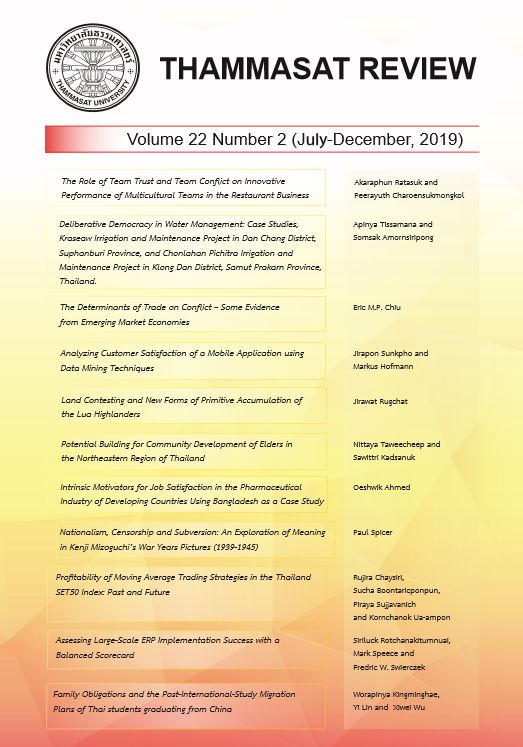Family Obligations and the Post-International-Study Migration Plans of Thai Students Graduating from China
Keywords:
Family obligation, International student, Post-graduation migration, Life course theoryAbstract
In reversing the narrative of ‘family support’ to ‘support family’ for a more comprehensive understanding of international student migration, this study examines how family obligations may shape post-international-study migration plans. Adopting a life course perspective and through quantitative methods using data collected among Thais studying in China, we find that, first, for caregiving of their elderly parents in the home country, the oldest group of students are more inclined to leave the host country upon graduation; second, for business purposes, those whose parents own businesses show a clear tendency to stay in China, Thailand’s largest trading partner; third, reflecting an egalitarian view on intimate relationships, those married or in a romantic relationship tend to migrate to places where the couple could both have a career; lastly, when international students need to fulfill obligations both for family businesses and for facilitating the partner’s career development or self-realization, instead of international students being left in dilemma alone, the family members may coordinate with each other and work out win-win solutions, taking advantage of their specific international economic circumstances. In an increasingly interconnected world , this study deepens our understanding on how the linked lives in international students’ family fare and migrate in flexible and productive ways.
Downloads
Published
How to Cite
Issue
Section
License
Copyright (c) 2019 Thammasat Review

This work is licensed under a Creative Commons Attribution-NonCommercial-NoDerivatives 4.0 International License.
The opinions and ideas expressed in all submissions published in Thammasat Review are solely that of the author(s) and do not necessarily reflect that of the editors or the editorial board.
The copyright of all articles including all written content and illustrations belong to Thammasat Review. Any individuals or organisation wishing to publish, reproduce and distribute a particular manuscript must seek permission from the journal first.








